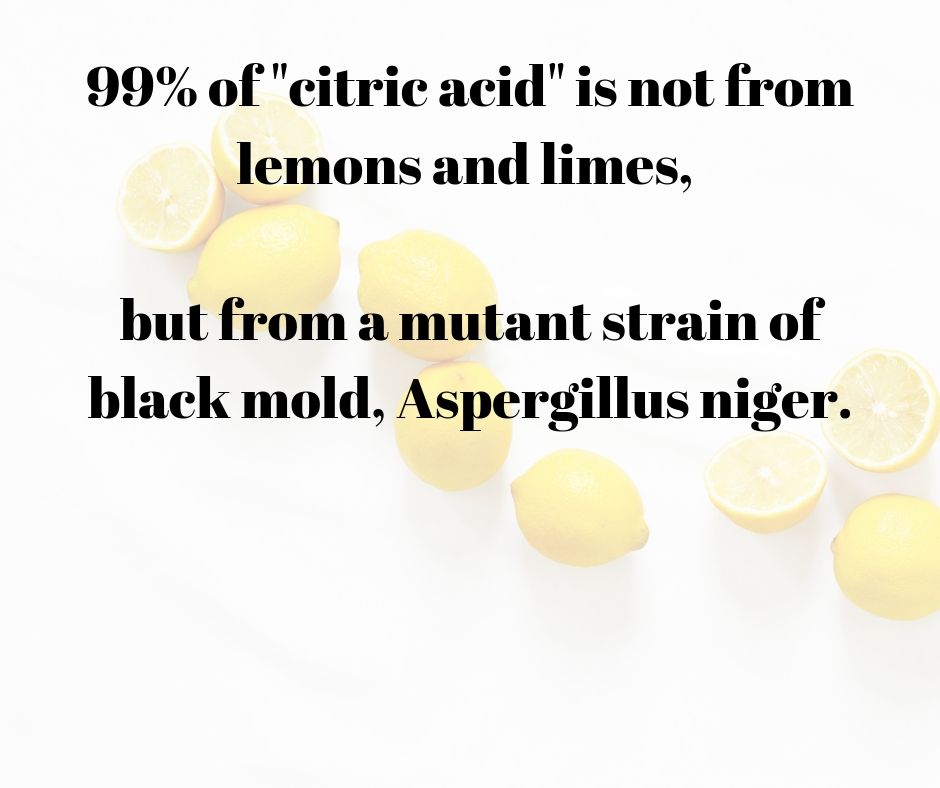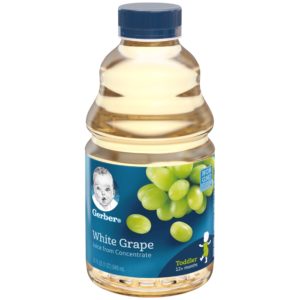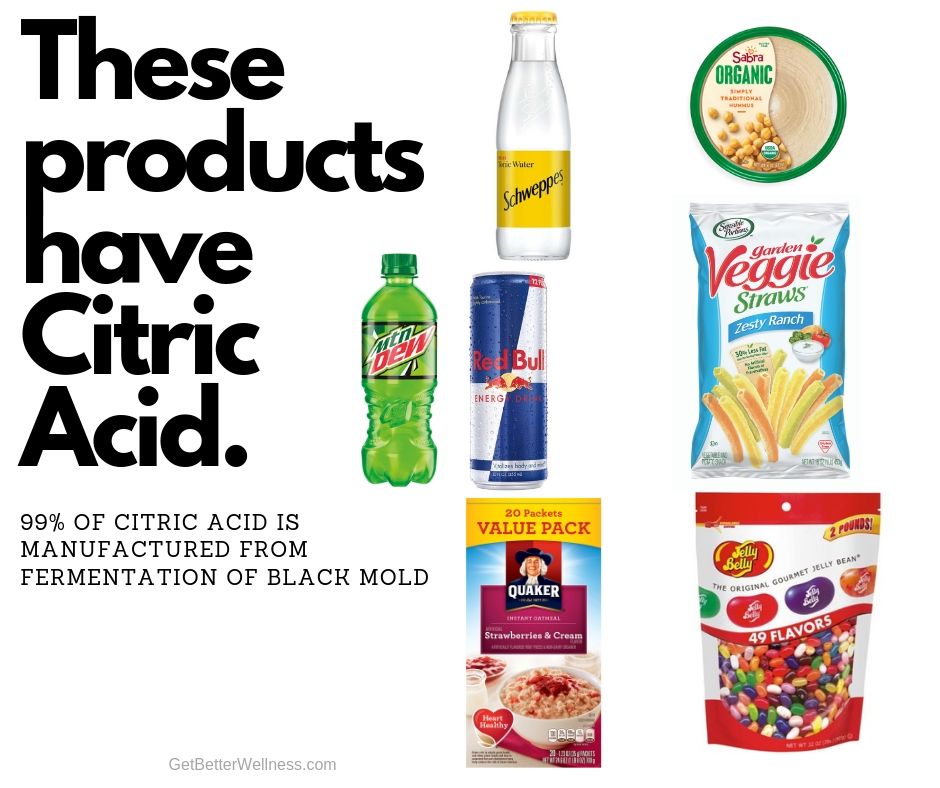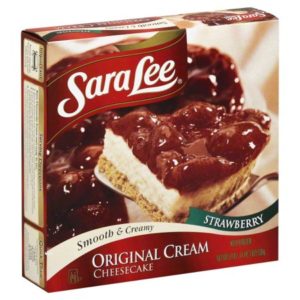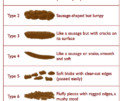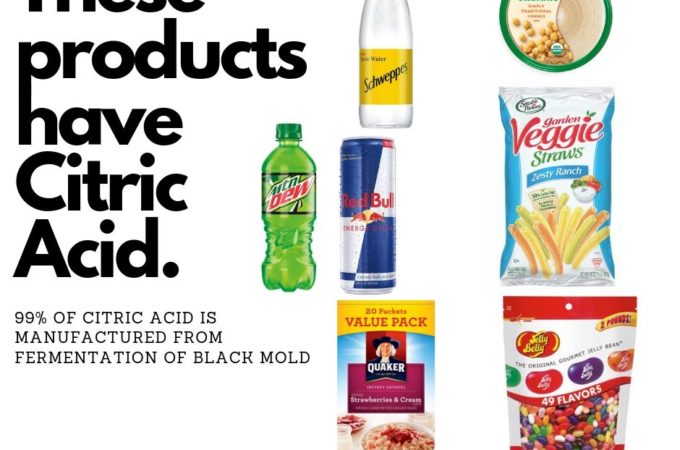
Citric Acid Safe??? I’m not buying that pile of hooey!
Sometimes we see an ingredient listed on the food package and think, “Oh, that’s safe, I know that it is food based.”
Citric acid
Is this one of those “safe” ingredients or are we buying a pile of hooey?
Because citric acid occurs naturally in citrus fruits and other fruits including oranges, lemons, limes, pineapple and grapefruit, we might think citric acid is always safe to consume.
Gentle reader, Big Food is not squeezing lemons into their factory food labeled with “citric acid.”
At best, this white powder is a product of food science. Because it is too expensive to extract citric acid from citrus fruit, food science has found cheap ways to make citric acid, and it is damaging our health.
 Pfizer and Citrique Belge are two companies that began manufacturing citric acid on a large scale. Now we see manufacturers like Cargill, Archer Daniels, and Jiali-bio, China’s largest manufacturer of MSG and citric acid.
Pfizer and Citrique Belge are two companies that began manufacturing citric acid on a large scale. Now we see manufacturers like Cargill, Archer Daniels, and Jiali-bio, China’s largest manufacturer of MSG and citric acid.
Citric acid is produced using a mold, Aspergillus niger.
Approximately 99% of the world’s production of MCA is carried out using the fungus Aspergillus niger since 1919. Aspergilus niger is a known allergen. (1)
The mold is grown in the presence of a carbohydrate like corn or sugar beets to produce citric acid.
Now, we are seeing the use of genetically modified Aspergillus niger employed to obtain higher yields. Besides the genetically modified mold being used, the carbohydrate “food” that the mold metabolizes is often genetically modified corn.
You mean its not lemons?
This is Aspergillus niger growing on an onion.
Cheryl Magnant has written about the process of aspergillus niger fermentation in the production of manufactured citric acid (MCA).
Big Food takes this mold and genetically modifies it for higher yield and then grows it on a substrate like genetically modified corn.
99% of the world’s manufactured citric acid is produced from in this manner.
Manufacturers do not always take out the protein which can be hydrolyzed and create MSG, a known neuro-toxin that kills brain cells.
Health Damage Caused by Manufactured Citric Acid
A study published in Toxicology Report presented four case reports of patients with a history of significant health problems including
- chronic inflammation
- respiratory symptoms
- joint and muscular pain
- irritable bowel symptoms
- weakness following ingestion of foods, beverages or vitamins containing MCA
The researchers stated, “Aspergilus niger is a known allergen. The FDA placed MCA under the category of GRAS without any research to substantiate this claim. In 2016, 2.3 million tons of MCA were produced, predominantly in China, and approximately 70% is used as a food or beverage additive. There have been no scientific studies performed to evaluate the safety of MCA when ingested in substantial amounts and with chronic exposure.” (1)
Not Lemons.
You are probably getting two sources of genetically modified foods introduced that possibly create MSG in the process.
This can’t be good and it is only the tip of the iceberg when it comes to Big Food using hidden GMO sources to produce food.
Sometimes citric acid can be the cause of food intolerance symptoms like
- stomach pain and cramping
- diarrhea
- vomiting
- blotchy skin
- dark circles under the eyes.
Read Labels – Always!
Manufactured citric acid is labeled as “citric acid” and does not tell you the source. Avoid all citric acid in food, beverages, supplements and medication unless you have called the manufacturer and verified that it is sourced from citrus fruit and not from mold.
Food additives manufactured with genetically modified microorganisms do not have to be labeled. Food crops that have been sprayed with glyphosate (the active herbicide ingredient in Roundup) pre-harvest do not have to be labeled.
To avoid GMO, glyphosate and mold-derived citric acid, it is best to eat unprocessed organic food as much as possible. (How to Detox from Glyphosate).
Why is Citric Acid Added to Processed Food?
Citric acid is one of the stronger edible acids, and it is primarily used for flavoring and preservation of food and beverages.
It can be used in soft drinks, candy and dairy products. It can be added to ice-cream as emulsifier, to caramel to prevent crystallization. Or it can be used as replacement of natural fresh lemon juice. (3)
Is Citric Acid safe? It is listed as GRAS.
I’m not buying that pile of hooey.
Annie Berical, certification specialist at Organic Crop Improvement Association says,
“It’s really tough for processors to locate a citric acid produced on a non- GMO substrate.”
“The more you dig, the more you realize that there are so many layers where GMOs might have been used.”
 Here is a list of common foods containing citric acid (probably made from GMO mold and/or GMO carbohydrate like sugar beets and corn). (2)
Here is a list of common foods containing citric acid (probably made from GMO mold and/or GMO carbohydrate like sugar beets and corn). (2)
- Laxatives
- Prescription and over the counter medication
- Supplements and vitamins
- Stock cubes and concentrates like chicken broth and bouillon
- Soft drinks, energy drinks and juice, especially fruit-flavored beverages and lemonade
- Jam, jelly, and fruit preserves.
- Yogurt
- Desserts
- Candy – It is the white powder dusted on sour hard candy to make it more sour.
- Baby food and juice
- Sherbet, ice cream, especially cheaper brands using vegetable oils. The citric acid is used so that the cheap fats appear emulsified like real ice cream made with milk and cream.
- Processed and packaged foods
- Canned tomatoes
- Tomato based products
- Crackers
- Mayonnaise
- Alcohol
- Cheese
- Spreads

- Cough Medicine (Citric acid, red no. 40, flavor, glycerin, high fructose corn syrup, saccharin sodium, sodium benzoate, sodium chloride, sodium citrate)
- Frozen fish
- Frozen potatoes
- Frozen waffles
- Frozen pizza
- Soups
- Canned fruits and vegetables
“The more you dig, the more you realize that there are so many layers where GMOs might have been used.”
Shockingly, MOST packaged foods contain genetically modified soy and/or corn in some form, as soy oil, corn oil, corn meal, corn syrup, dextrose, maltodextrin, fructose, soy flour, soy protein, soy lecithin, textured vegetable protein, citric acid, and lactic acid.
Tips for avoiding GMO foods and Foods with Manufactured Citric Acid
1. Eat real food and avoid processed foods.
2. Buy organically raised foods.
3. Avoid the four ingredients that are usually genetically modified: corn, soybeans, canola, cottonseed. Also avoid sugar made from sugar beets. If the label says “sugar” then assume it is GMO sugar.
- Corn (fructose, glucose, dextrose, modified food starch)
- Soy (lecithin, soybean oil, vegetable protein, vegetable oil, isoflavone)
- Canola oil or rapeseed oil
- Cottonseed oil
- Sugar (any sugar not listed specifically from sugar cane)
4. Avoid the food crops that are often sprayed with glyphosate pre-harvest as a desiccant. Read ingredient labels on all packaged food. Researcher Anthony Samsel said: “There are some 160 of our foods contaminated with glyphosate.” Yes, I know. If you are eating processed food and conventionally raised food, it is an impossible task.
Start a garden if you can and eat organic, real food, as close to the way it was created as possible.
(1) Sweis IE, Cressey BC. Potential role of the common food additive manufactured citric acid in eliciting significant inflammatory reactions contributing to serious disease states: A series of four case reports. Toxicol Rep. 2018;5:808-812. doi: 10.1016/j.toxrep.2018.08.002. eCollection 2018. PubMed PMID: 30128297; PubMed Central PMCID: PMC6097542.
(2) Max B, Salgado JM, Rodríguez N, Cortés S, Converti A, Domínguez JM. Biotechnological production of citric acid. Braz J Microbiol. 2010 Oct-Dec;41(4):862-75. doi: 10.1590/S1517-83822010000400005. Epub 2010 Dec 1. PubMed PMID: 24031566; PubMed Central PMCID: PMC3769771.
Recommended
-
Potassium Iodide and Nuclear War or Nuclear AccidentApril 23rd, 2024
-
Natural Remedies for ConstipationApril 23rd, 2024
-
Magnesium Deficiency Triggers 22 ConditionsApril 22nd, 2024
-
Four reasons that you need about eight hours of sleepApril 21st, 2024
-
Depression and NutritionApril 20th, 2024

